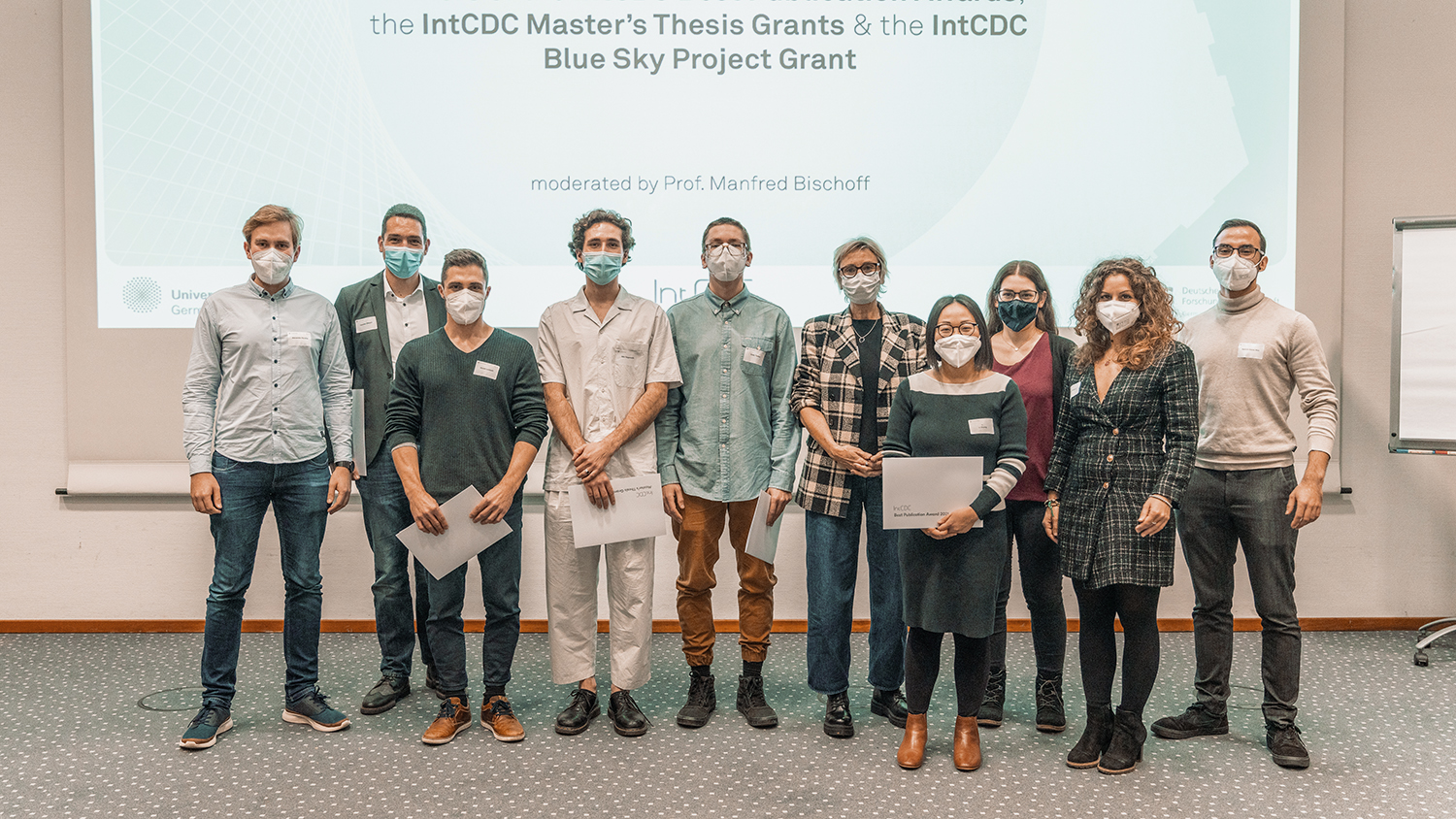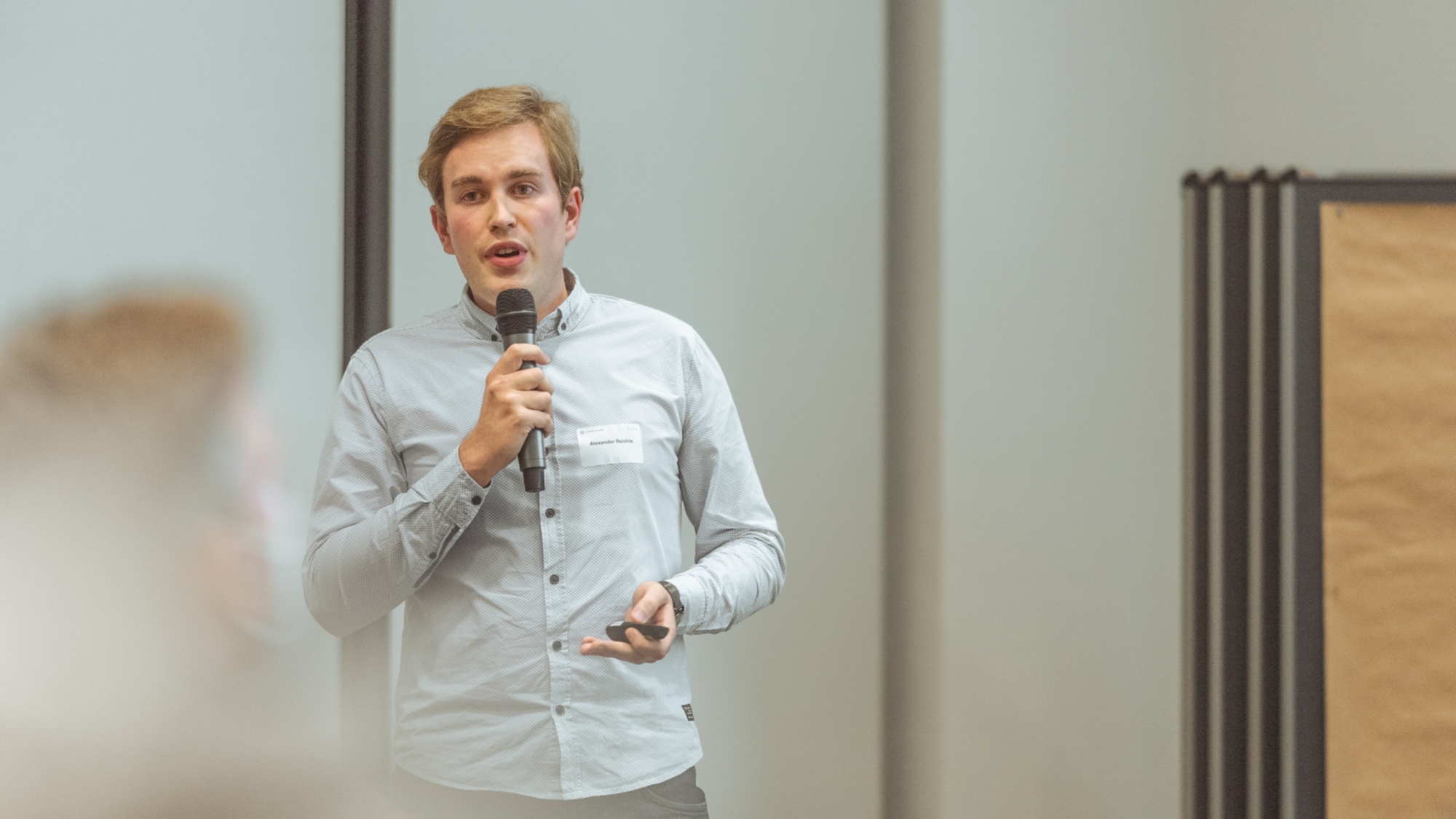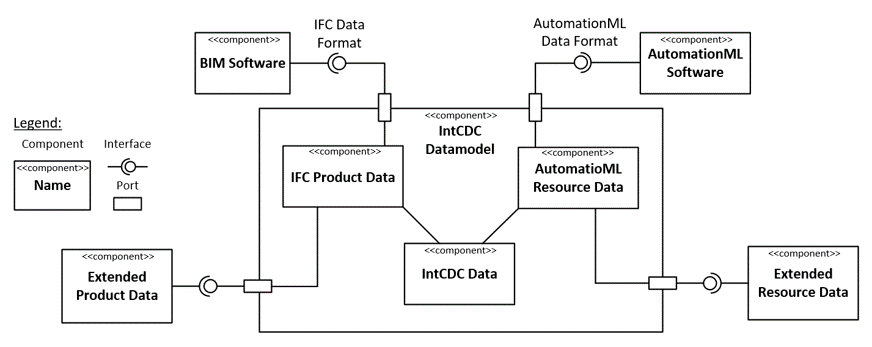We are pleased to announce that the IntCDC Best Publication Award for 2020 and 2020/21, along with two other grants, were handed over during a festive ceremony at this year's IntCDC Status Seminar.
The IntCDC Best Publication Award is part of a bundle of measures and activities designed to promote early career researchers within the Cluster of Excellence IntCDC. The award aims to honour and support early academic independence and dedication to academic work. It recognises up to two excellent publications per year.

The Award and Grant winners at the IntCDC Status Seminar
We are happy to announce that the IntCDC Best Publication Award 2020 was awarded to Carsten Ellwein and his co-authors Alexander Reichle, Melanie Herschel and Alexander Verl for their paper “Integrative data processing for cyber-physical off-site and on-site construction promoting co-design”.
 Carsten Ellwein
Carsten Ellwein
 Alexander Reichle presenting the paper at the IntCDC Status Seminar
Alexander Reichle presenting the paper at the IntCDC Status Seminar
Paper Abstract
The term co-design describes a collaborative design process, usually across the boundaries of individual areas. A major aspect, and often an obstacle in the implementation of the co-design approach, is the establishment of a centralized data management system. Neither the information feedback nor the reaction to adjustments in upstream model steps are supported in current approaches, which makes continuous collaboration more difficult and at best reduces the co-design approach for continuous data usage.

This paper addresses these weaknesses while outlining an integrative data processing concept, largely based on standards, enabling co-design between the domains of construction and industrial prefabrication. Geometrical information generated during architectural design and construction planning is reused for the production of components, manufacturing-related design adjustments are transferred back into the domain of construction.
More information on the paper can be found here.
We are also pleased to announce that Li Zhang and her co-authors Laura Balangé, Kathrin Braun, Roberta Di Bari, Rafael Horn, Deniz Hos, Cordula Kropp, Philip Leistner and Volker Schwieger received the IntCDC Best Publication Award 2020/21 for their paper Holistic Quality Model and Assessment: Quality as Driver for Sustainable Construction.
Li Zhang
 Li ZHang presenting at the IntCDC Status Seminar
Li ZHang presenting at the IntCDC Status Seminar
Paper Abstract
Facing rising building demands due to a fast-growing world population and significant environmental challenges at the same time, the building sector urgently requires innovation. The Cluster of Excellence Integrative Computational Design and Construction for Architecture at the University of Stuttgart tackles these challenges through a Co-Design approach for integrating computational design and engineering and robotic construction. Within this research framework, a Holistic Quality Model is developed to ensure the technical, environmental, and social quality of Co-Design processes and products. Up to now, quality models that consider and integrate all these three aspects throughout the life cycle of buildings are still missing. The article outlines the concept of holistic quality assessment based on a Holistic Quality Model for sustainable construction. A key mechanism for sustainable quality assessment in the Holistic Quality Model is the definition of control and decision points in the construction process where critical decisions are made that will affect the quality of the building throughout its entire life-cycle. Firstly, subject-specific quality concepts are defined and their interrelations are conceptualized. Subsequently, these interrelations and their effects on the overall Co-Design construction processes and products are explained using the example of the semi-robotic production of concrete slabs. Examples for control and decision points are given as well. The outline presented here serves as a basis for further advancing and concretizing the Holistic Quality Model and its applications in Co-Design for a functioning, liveable, and sustainable high-quality construction and building culture.
More information on the paper can be found here.
More on all IntCDC Grants and Awards can be found here.


